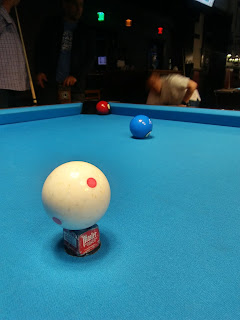Why Linear Thinking is Bollocks (and thank goodness I can't do it)
My book club has invested more than a year trying to define intelligence, consciousness, meaning, emergence.
You cannot neatly label and store every bit of information you come across, intending to pull it out at the correct time for later use. Our brains are messy, and the need for answers will not be orderly. If you insist on working with only the data packets you can access in a linear fashion - and it is possible to go through life this way - you're doing injustice to the capable ball of fun in your skull.Dr. Douglas R. Hofstadter, in his book Godel, Escher, Bach - an Eternal Golden Braid, said: "In the early days it was assumed that knowledge came in sentence-like packets, and that the best way to implant knowledge into a program was to develop a simple way of translating facts into small passive packets of data. Then every fact would simply be a piece of data, accessible to the programs using it. This is exemplified by chess programs, where board Positions are coded into matrices or lists of some sort and stored efficiently in memory where they can be retrieved and acted upon by subroutines.The fact that human beings store facts in a more complicated way was known to psychologists for quite a while and has only recently been rediscovered by AI workers, who are now confronting the problems of "chunked" knowledge, and the difference between procedural and declarative types of knowledge, which is related, as we saw in Chapter XI, to the difference between knowledge which is accessible to introspection and knowledge which is inaccessible to introspection."
A line graph is insufficient to describe thought process. Your team of coworkers, friends, or cricket players is a better model for cognitive function - a heterarchy. Each is assigned a separate position, but is flexible and able to fill in gaps between members, or a hole left when a member is removed from the set. Any member may take the lead.
Each member has a separate brain with data sets similar to yours but with additional data you don't have. In the act of problem-solving you can query team-mates to supply you with information you don't currently have, working in tandem with the data you all share.
Think of your brain as several versions of you, and let them work together as a team. You are Legion. Something you know about fixing cars may actually help you organise a dinner party. If that seems infeasible, let it marinate a bit or change the data packet labels to things you know.
This is why letting go of a problem works: if you can't figure out how to change the filter on your air conditioner, do something different like walk your dog or have a glass of wine. Tie those tasks together! In the process of doing something else, your brain will work in the background and find what it needs to solve the first problem.
Now back to the actual team outside your brain. You see what's important here? You have to assume that other people have useful information to which you aren't privy. These people have value assigned to them, but here's where things get tricky: they aren't books or keyed lock-boxes. People are organic beings with wishes of their own, and their complicity is needed to retrieve the information. You can't just go in and get it, dryly, without emotional context. That's called Using.
Know that your own data-set is insufficient for maximum life experience. Unless your goal is simply to breathe until you die (your body can do that on its own) you need to interact on equal terms with people. Believe in their value like you believe in your own.
Do things with other people that they choose; break your routine. Offer to show them what you like. This is the best way to get new information out of the lock-box, hopefully to solve a problem your brain is digesting in the background.
Gird yourself and interact.
Further Reading:
Gödel, Escher, Bach - An Eternal Golden Braid
What is this book about? It's about how your mind expands, why it wants to do so, and how we might consider creating a machine that can replicate these behaviours. It's about the overlap between music, art, and science, and a cool character named Aunt Hillary. Just try it.











:-) Will do!
ReplyDelete